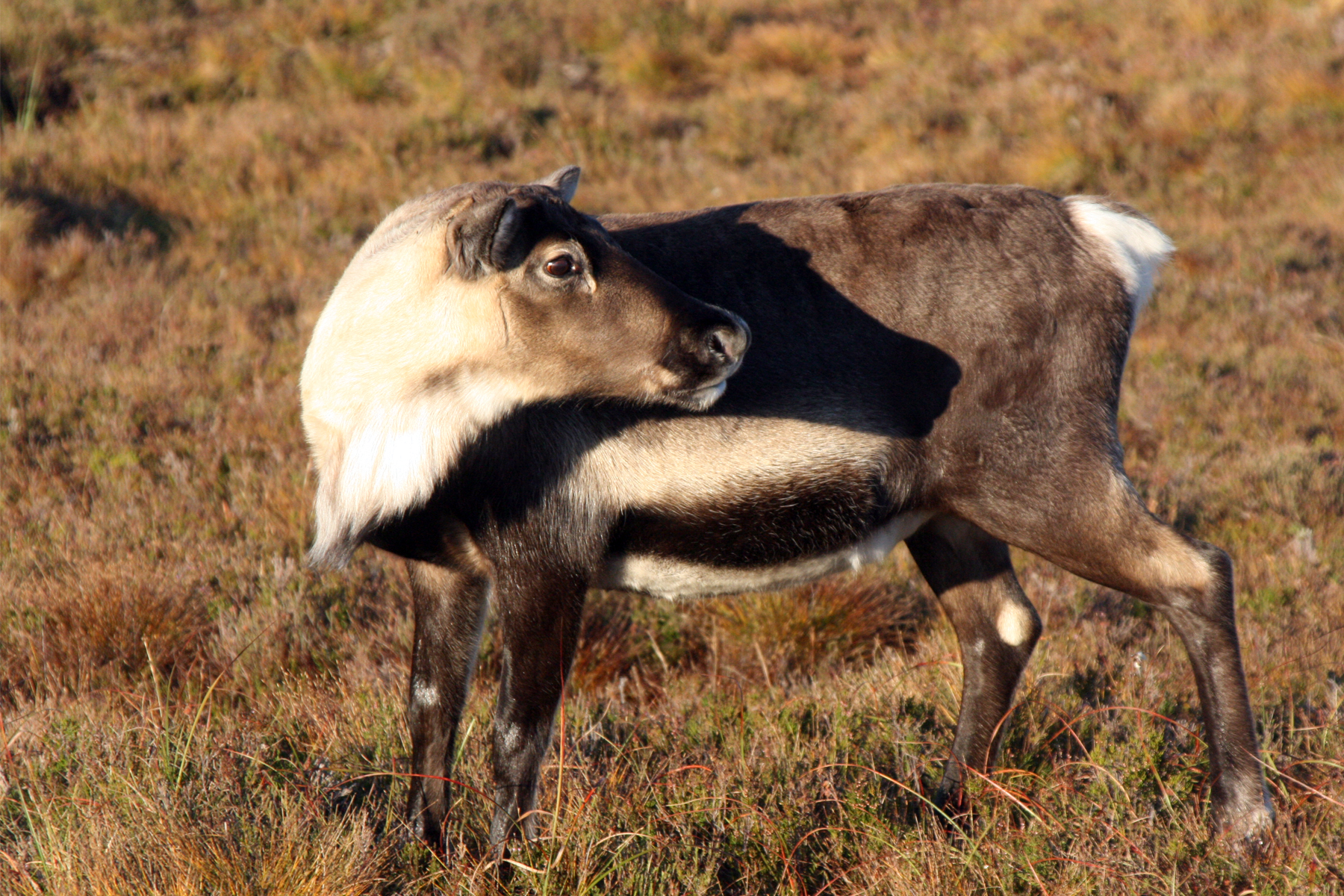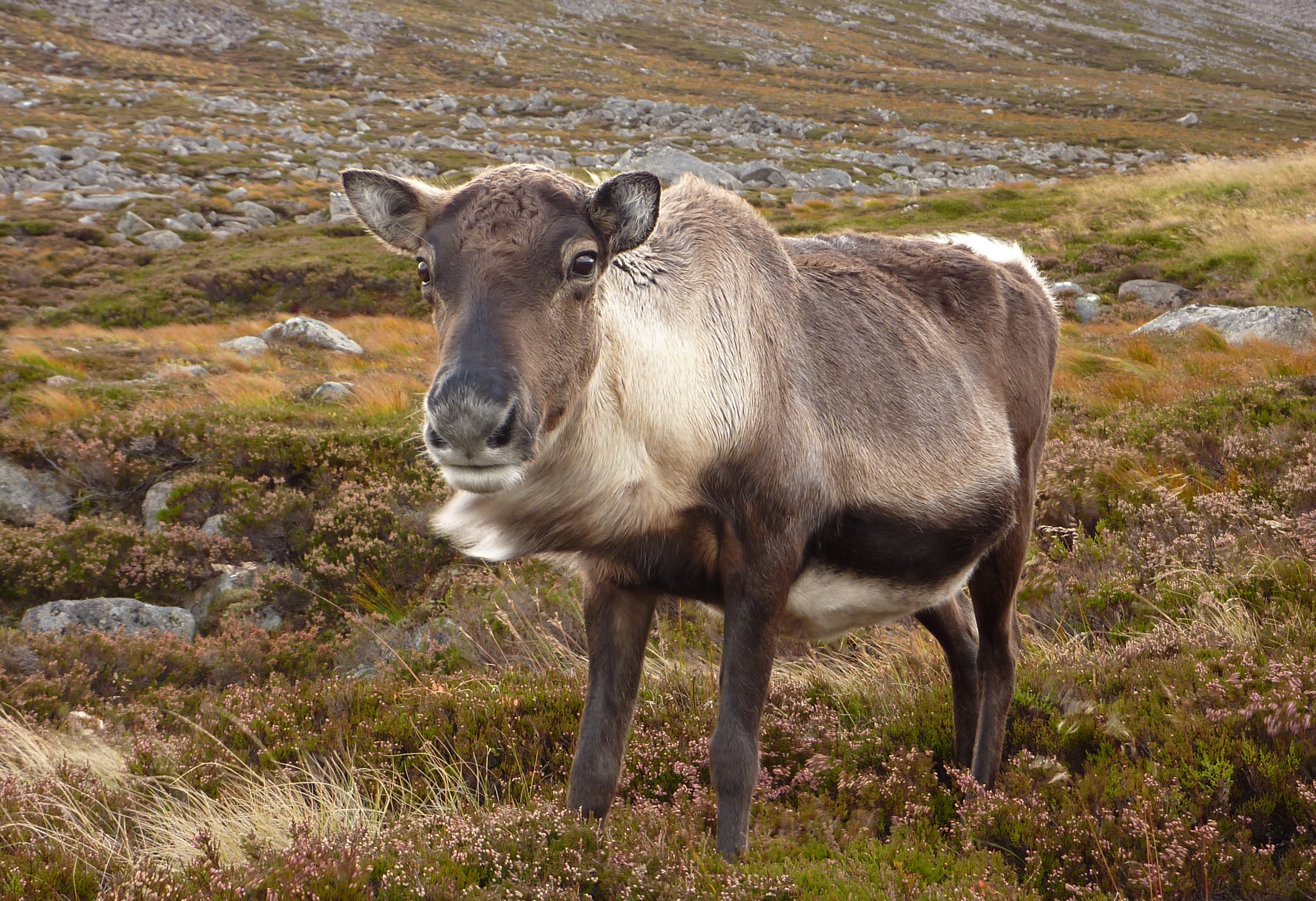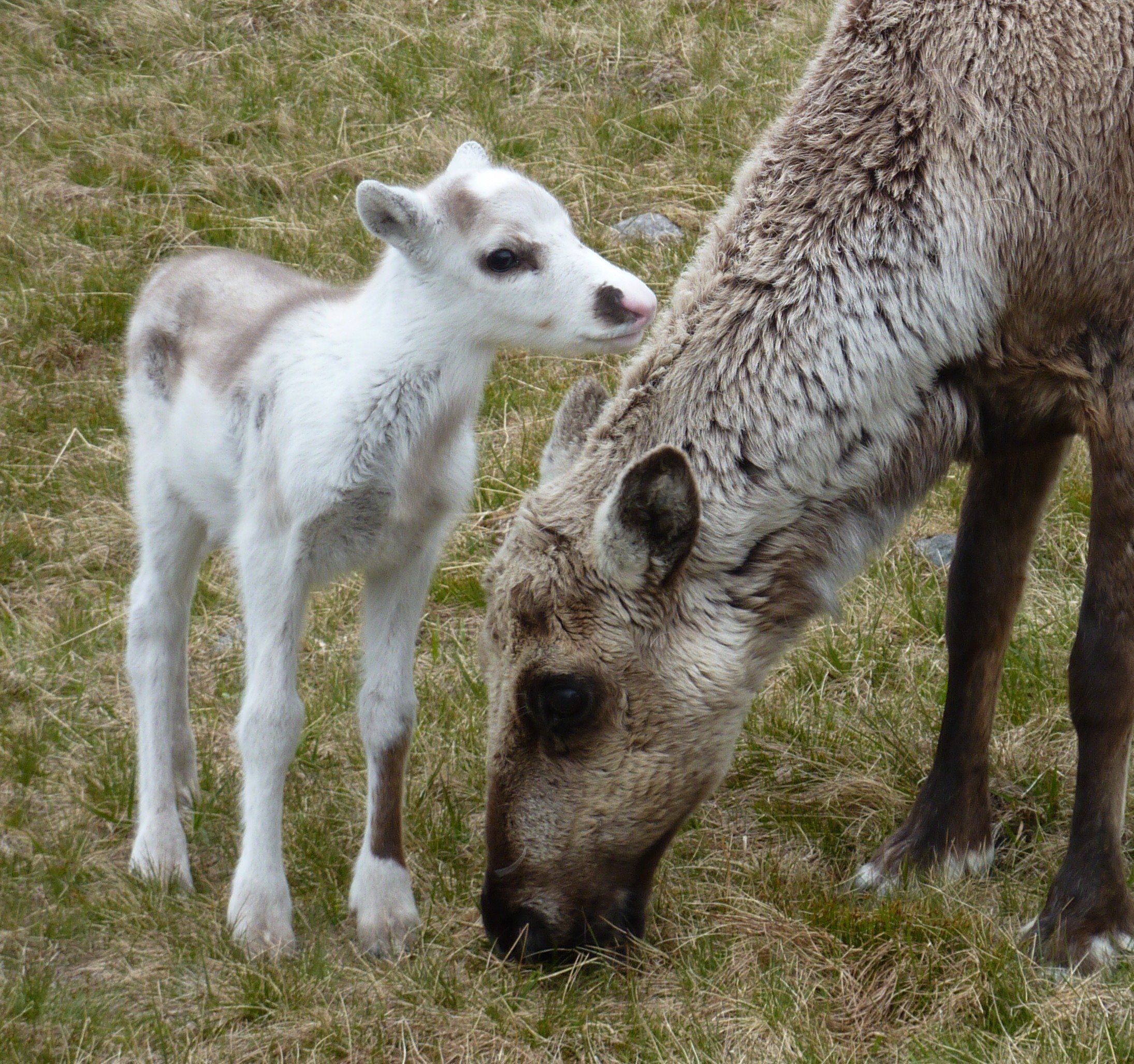One of my favourite reindeer when I first arrived was Arnish. To start with this was possibly because she was so distinctive as she didn’t grow any antlers, making her one of the very first reindeer in the herd that I learnt, but quickly my reasoning changed and simply became because she was just so, well, cool.

Arnish was, quite simply, a dude. Everyone liked her, and she was a tame, friendly female. Some of the females in the herd skulk around in the background, not particularly wild nor particularly tame, spending most of their time out on the Cairngorm free-range where we barely ever see them. But some, like Arnish, always seem to be around, and spend a good bit of their time in the hill enclosure too as well as on the free-range, when it is easier to get to know them as we see them daily.

Antlers are a symbol of dominance in reindeer, generally the bigger the better. A reindeer with no antlers should therefore be very low in the hierarchy, but it seems no-one told Arnish this. A great lump of a female, thickset and solid, with a head the size of a male reindeer’s, Arnish ruled the roost and was one of the leaders of the herd, or at least she was by the time I arrived on the scene. At this point she was 10 years old already and only needed to look at a group of reindeer for them to part like the Dead Sea to make way for her! If all else failed, she just ploughed into them headfirst, somewhat resembling a hairy bulldozer. No-one messed with Arnish.

Her lack of antlers had one significant downside, for us at least. If Arnish got her head into the feedbag you were carrying, it was nigh on impossible to get her out. When any other greedy, tame reindeer push their way into a feedbag, we can remove them but hoicking them out by an antler but this just wasn’t possible with Arnish – there were no handles! The battle was lost already. I should add that most of the time we never touch a reindeer’s antlers, certainly not when they are in velvet, but when in their bone form with no feeling needs must at times!

Arnish may be gone now, but she’s left behind a legacy in the form of Addax, Jaffa and Svalbard. Daughters Addax and Jaffa have gone on to have calves of their own, and son Svalbard, along with Addax’s own son Monty, are part of our team of ‘Christmas reindeer’ – males who are trained to harness and go out on tour in November and December.

Svalbard was Arnish’s last calf, and there’s a wee story about his name to tell. He turned up without his mum in October 2011, and we named him Meccano, to fit into the ‘Games and Pastimes’ theme of that year. Arnish had passed away out on the mountains, but at 4 months old her calf was just about old enough to survive without her. Short and dumpy, Meccano looked very much like a Svalbard reindeer, the sub-species of the Svalbard Islands which have evolved shorter legs than their migratory cousins. Try as we might, the nickname stuck, and Meccano became Svalbard.

With Addax’s daughter Parmesan quite possibly pregnant just now with her first calf, Arnish’s bloodline looks set to continue for a good while yet. Every descendant so far has produced antlers, but the antlerless trait can skip generations so maybe watch this space.
Hen
